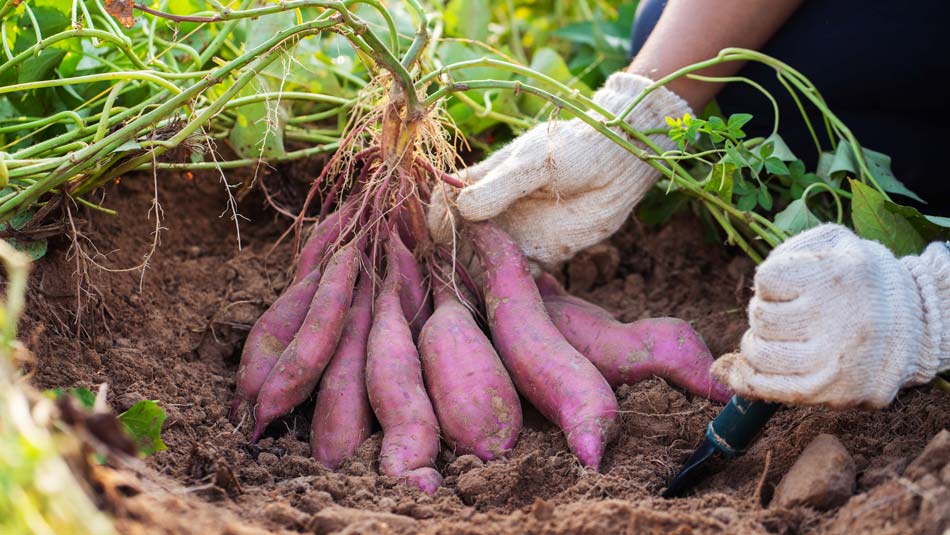
How community gardens help kai resilience (and how gas could play a part)
You don’t need a lifestyle block or a complete lifestyle overhaul to make a difference for the planet. Sometimes, it starts with a few planter boxes, a compost bin, and some willing hands.
Community gardens are flourishing across Aotearoa - popping up in backyards, public reserves, schools, and shared neighbourhood spaces. They offer far more than just fresh kai and connection. These small, but powerful projects are helping local communities grow their own food, increase access to fresh produce, and build local knowledge around growing and sharing kai.
Growing food locally, even on a small scale, removes the long journey from farm to supermarket. Whether it’s your own garden, a shared patch, or a community plot, producing food locally helps reduce “food miles” and lowers our carbon footprint.
Composting doesn’t have to be complicated – just start small. Collect veggie peels in a container, or join a local garden that already has a system in place.
It’s about keeping things in a loop, not a landfill.
Around the world, organic waste like food scraps and garden clippings, as well as other organic waste, is being turned into biogas and refined into biomethane, a renewable gas that can be used just like natural gas. It’s a smart way to reuse what we would otherwise throw away. In the future, your potato peels might help power your cooktop. Biogas is currently being investigated for use in Aotearoa. Learn how biogas works here.
Not only do community gardens grow veggies, they also grow curiosity about food systems, composting, and how waste can be turned into energy. It’s a small but powerful way to build knowledge and confidence in growing our own food.
Want tips for growing food or composting? Check out how you can set up a community garden or start an edible garden at home.
Community gardens are flourishing across Aotearoa - popping up in backyards, public reserves, schools, and shared neighbourhood spaces. They offer far more than just fresh kai and connection. These small, but powerful projects are helping local communities grow their own food, increase access to fresh produce, and build local knowledge around growing and sharing kai.
Local food builds local strength
Much of the food we buy has travelled a long way before it reaches our plates; from ships and trucks to chillers and shelves. When we grow food closer to home, we’re less dependent on long supply chains, price changes, and availability issues.Growing food locally, even on a small scale, removes the long journey from farm to supermarket. Whether it’s your own garden, a shared patch, or a community plot, producing food locally helps reduce “food miles” and lowers our carbon footprint.
Feeding the community and whenua
A good veggie garden is more than just kai. It helps nurture the soil, absorb carbon, attract pollinators like bees and butterflies, and improve water retention. Gardens also offer a simple way to keep food waste out of landfills by turning scraps into compost, which helps reduce emissions.Composting doesn’t have to be complicated – just start small. Collect veggie peels in a container, or join a local garden that already has a system in place.
Every day circular economy in action
The circular economy is about wasting less and using what we have more wisely, and community gardens bring that idea to life. Food scraps can be turned into compost, which feeds new plants, and extra produce is shared, not thrown away.It’s about keeping things in a loop, not a landfill.
What does gas have to do with gardens?
Now you might be thinking, what does gas have to do with all this?Around the world, organic waste like food scraps and garden clippings, as well as other organic waste, is being turned into biogas and refined into biomethane, a renewable gas that can be used just like natural gas. It’s a smart way to reuse what we would otherwise throw away. In the future, your potato peels might help power your cooktop. Biogas is currently being investigated for use in Aotearoa. Learn how biogas works here.
Grow Together garden project
That's why we recently ran our Grow together project to gift a community garden to one lucky school. The winner, Boulcott School in Lower Hutt, received everything they needed to build, plant and grow a veggie garden on their school grounds.Not only do community gardens grow veggies, they also grow curiosity about food systems, composting, and how waste can be turned into energy. It’s a small but powerful way to build knowledge and confidence in growing our own food.
Small steps, shared impact
Community gardens show how small, local actions can lead to meaningful impact. Whether you’re growing herbs on a balcony or joining a neighbourhood working bee, every step helps build a more sustainable future.Want tips for growing food or composting? Check out how you can set up a community garden or start an edible garden at home.
Ready to connect?
Check out the connection process, to know what choices you'll need to make as part of getting connected to natural gas.
Submit your natural gas connection application today. Our customer team will then ring you to confirm a few more details and progress your application.
Want to know more?
If you've had a good look around our website and still have questions let us know what you'd like more information about.
